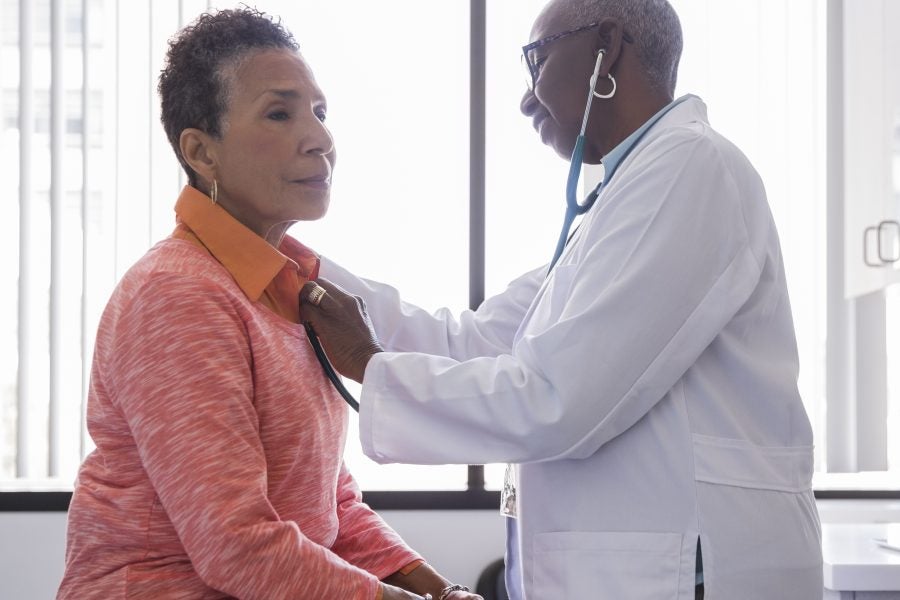
Medical experts coined the term “tripledemic” as a warning for the collision of RSV (Respiratory Syncytial Virus), the flu, and Covid-19 this winter season. Taking precautions with the rise of those viruses is critical. According to the Centers for Disease Control and Prevention, the flu averages 12,000 – 52,000 deaths annually and RSV 6,000-10,000 among those 65 and older. Additionally, according to the World Health Organization, Covid- 19 has killed more than 14 million people since its inception.
The numbers are alarming, but there are pragmatic ways to prevent and treat those viruses.
First and foremost, Shahnaz Singh, NP., detailed how those viruses impact us. “When a foreign invader enters our body, our immune system immediately springs into action. What we recognize as sickness is our immune system kicking into action.” The virus disrupts our normal cell function– and our bodies respond accordingly. “Fever, chills, headache, cough..all of these are symptoms that mean our immune system has recognized something foreign, and it’s trying to get rid of it.”
There are general ways to avoid the contraction of a virus. “Washing your hands, often sanitizing, and staying away from big crowds are the big ways to prevent getting the virus if there’s no vaccine for it,” says Ben Simmons, MD.
While complying with those recommendations, escaping viruses is not guaranteed. Therefore, if symptoms develop, “Now that we’re at this place of having three different viruses, the important thing is to be able to distinguish which one you have because there are different responses for them,” says Singh.
RSV, the flu, Covid-19, and, honorable mention, the common cold all have similar yet different treatment methods, and we asked Singh and Simmons to detail those.
Common Cold
More than 200 viruses contribute to the symptoms we refer to as the common cold. The nose and throat inflammation indicates that an individual suffers from one of those viruses, followed by coughing and sneezing. Contrary to popular folklore belief, the common cold is not caused by weather or getting wet.
According to the CDC, adults have an average of 2-3 colds yearly. Since common cold viruses mutate rapidly, there is no vaccine for it. Its quick mutation also makes it hard to prevent contracting; therefore, the usual is recommended to remain safe– washing hands, staying away from sick people, and avoiding eye, nose, or mouth contact with unwashed hands.
If ‘under the weather,’ Dr. Simmons says incorporating teas and yogurts into your diet can help with symptom management. They do not “help the virus leave your body any faster.” Another popular folklore belief has been debunked. Tea is suggested for a sore throat or cough because “the different vitamins and minerals can help calm inflammation.” Yogurt was mentioned for the viruses that affect our GI because it “helps with pain and digestion since it has its own set of bacteria.”
Dr. Simmons warns against detox teas because they have “no scientific benefit.” He specifies that they do “more harm than good” to the immune system because of the sugar in them. He added juices and sodas to the list of popular items to avoid because of the sugar intake, including the infamous store-bought Gingerale. Another popular folklore debunked.
Most people recover within about 7-10 days.
Influenza
The flu is short for influenza virus and mainly infects the nose, throat, and lungs. Typical flu symptoms include things like fever, body aches, and weakness. Each year the virus peaks during the winter months, hence the term ‘flu season.’
Flu-like symptoms should be responded to immediately because the virus disproportionately affects Black people. CDC states that compared to White people, age-adjusted flu hospitalization rates are nearly two times higher among Black people. The causes of the disparities include higher prevalence of underlying medical conditions and missed opportunities to vaccinate– to name a few.
Because of that, along with the preventative measures recommended for each virus- washing hands, avoiding people who are sick, etc. – getting the flu shot every year is encouraged. Dr. Simmons says the shot is “50% successful at stopping the flu.” He understands the reservations due to the distrust in medicine but ensures that it is a “decent tool.” He explained that a new vaccine is developed each year based on last year’s strain, and science has become “better at predicting” the following year’s strain. Since the vaccine is based on prediction, it’s challenging to surpass a 50-60 percent accuracy rate.
Also, incorporating supplements into your diet is recommended by Singh to strengthen your body before contracting a virus. Her favorites are Zinc and Vitamin C. If contracted, Dr. Simmons mentioned an antiviral medication called Tamiflu. It is only effective within the first 24-48 hours after getting infected, so he urges everyone to respond promptly to their symptoms. Along with the medications, Singh advocates for “replenishing your body” with “rest” and “hydration.” She says that’s very important for symptom management. By two weeks, most people will have fully recovered from the flu.
Since the flu virus targets the lungs, people with pre-existing conditions are encouraged to notify their primary care provider immediately after experiencing systems for a personalized approach to treating it.
Respiratory Syncytial Virus
RSV is most common in infants and young children, or older adults. Singh suggests that the increase in cases among children this year is likely due to relaxed safety precautions previously introduced in schools because of Covid. “The same safety measures that prevented Covid-19 prevent RSV.” Therefore, children should remain distanced, stay home if sick, wash their hands frequently, and wear masks to slow the spread.
Additionally, monoclonal antibodies are approved for children to avoid contracting the virus. Those antibodies are proteins that protect the body when RSV enters. Therefore, a dose of the monoclonal antibodies designed for RSV can prevent severe cases. Researchers are working to develop a vaccine.
RSV is “highly contagious” but has been around for years, so recovery practices are the same. The virus is “generally treated the same as the flu” with “symptom management,” says Singh.
In most adult patients, RSV operates “like a common cold” unless the patient has pre-existing medical conditions such as “elevated BMI, diabetes, lung or heart disease,” says Dr. Simmons. Those risk factors can result in a stronger reaction to the virus. There’s no antiviral medicine against RSV. Dr. Simmons recommends “hydration and Tylenol” as a treatment for common symptoms such as “feeling ‘out of it,’ tiredness, or a fever” for adults. He recommends seeking medical care for additional air support if a symptom is difficulty breathing.
The CDC states that most RSV infections disappear in a week or two. Healthy adults and infected infants do not usually need to be hospitalized.
COVID-19
Coronavirus needs no introduction. Singh and Simmons stated that Covid-19 is prevented and treated like the flu if you do not have pre-existing conditions.
Coronavirus was a new strain introduced to the World Health Organization in 2019. Since it had much harsher symptoms than the common cold, including ‘shortness of breath,’ and spread rapidly, our government shut everything down, and medical professionals expedited research and the development of treatments to prevent its contraction. The vaccine was developed as a result.
Dr. Simmons said it was a “10-year process in a year and a half” concerning the vaccine’s advancement. Because of that, he understands the hesitations surrounding receiving a shot as a preventative measure. Yet, he assures us that it is “more effective than the flu vaccine because there aren’t as many variants of Covid as there is the flu.” Therefore, hand washing, avoiding people, and taking the vaccine are recommended to prevent catching the virus.
According to Dr. Simmons, recovery differs depending on whether an individual is immunocompromised because that will affect their reaction to the virus. An Immunocompromised person has a weak immune system, and its defenses are low, affecting its ability to fight off infections and diseases. Covid- 19 could be “the straw that breaks the camel’s back”; therefore, treatments are more vital.
The FDA has authorized antiviral medications to treat mild to moderate COVID-19 in people more likely to get very sick. A list of those antivirals can be found here.
Most people with COVID-19 have mild illnesses and can recover at home. Symptoms can be treated with over-the-counter medicines, such as Tylenol.
In conclusion, Singh left us with the encouraging words, “these viruses are not here to stay forever.” As we enter the spring and summer, sickness will die down. In the meantime, all we can do is be thoughtful about our actions and use the resources in this story to recover if a virus is contracted.







